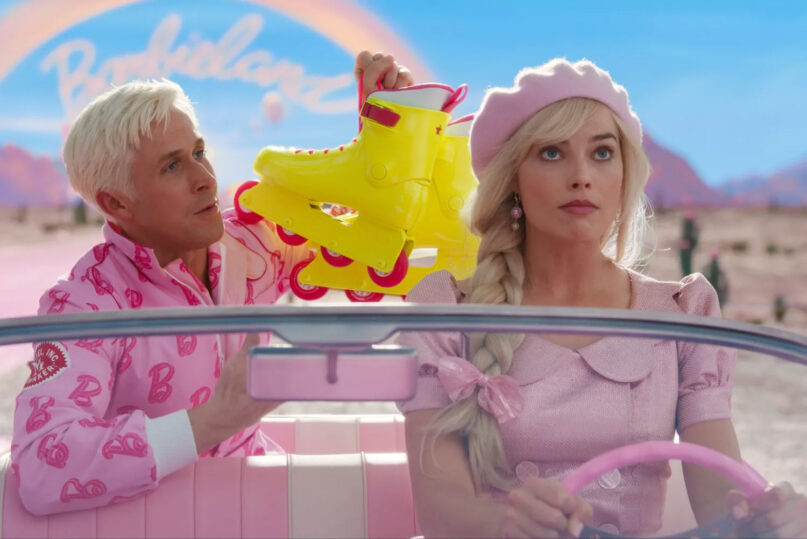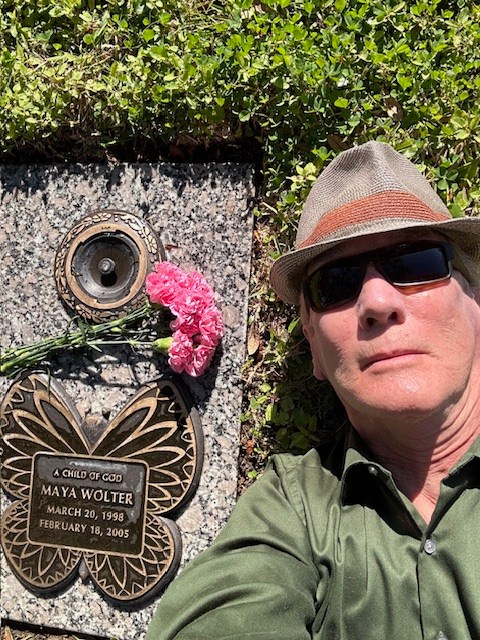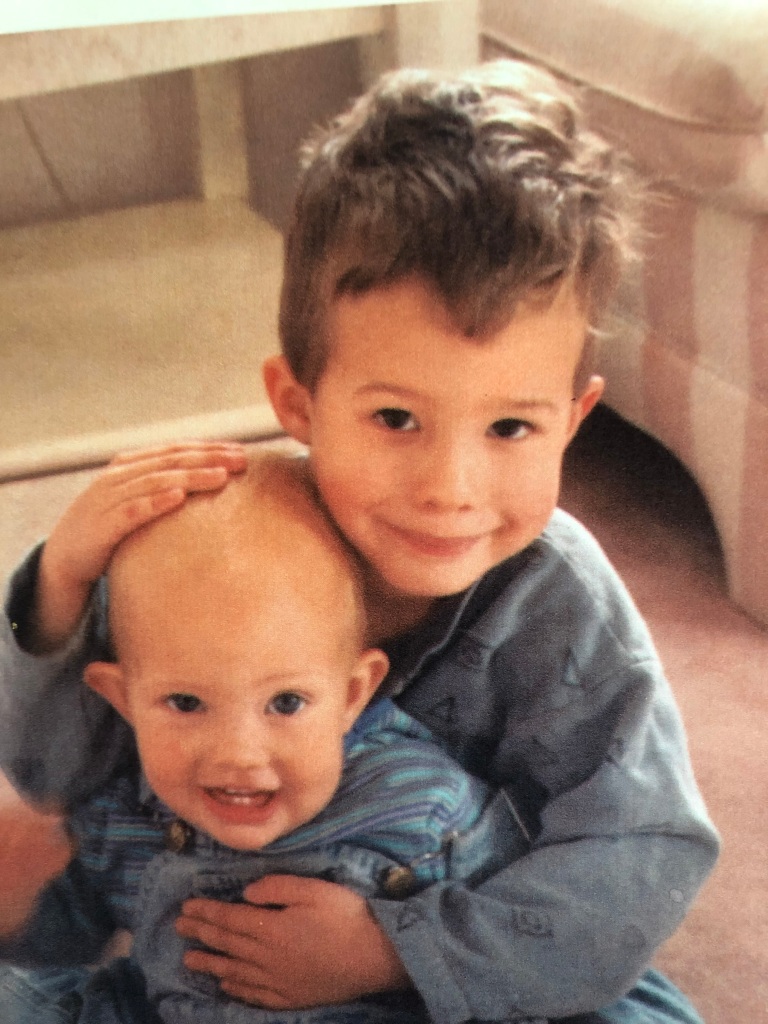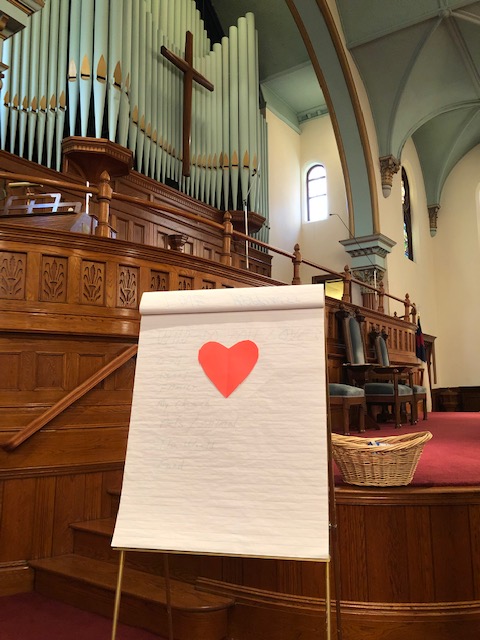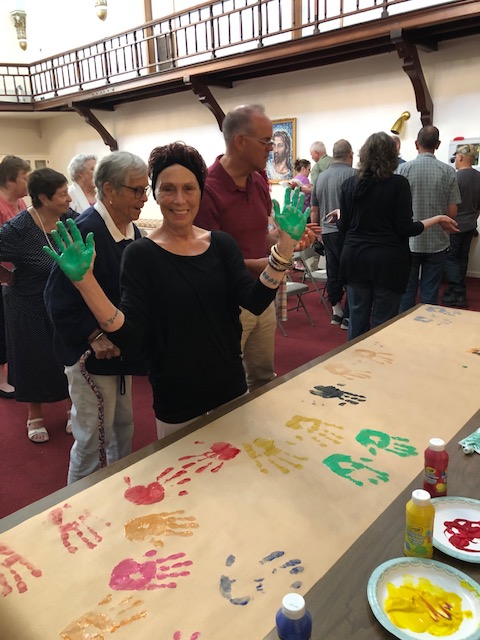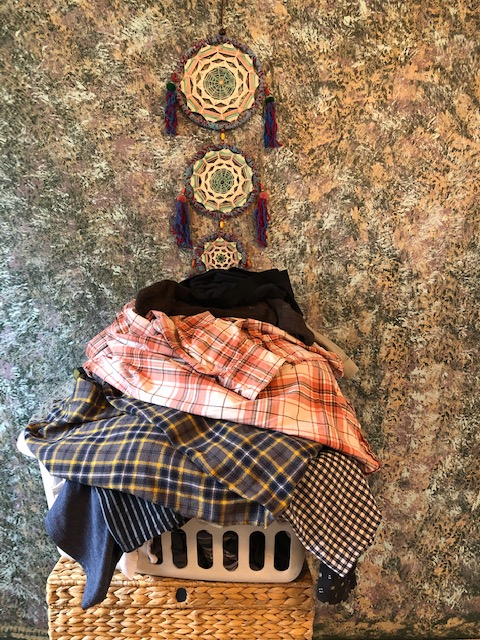Greta Gerwig didn’t get an Oscar bid for ‘Barbie’ but she does get Genesis
There’s a candy-coated biblical parallel to be found in the best-picture nominee.
Ryan Gosling as Ken, left, and Margot Robbie as Barbie in the film “Barbie.” (Photo courtesy of Warner Bros. Pictures)
March 7, 2024
By Dwight Lee Wolter
(RNS) — As we roll into Oscar weekend, let’s take another look at the best-picture nominee that dominated the box office and the cultural imagination for months (even if its director and star got snubbed by the Academy). “Barbie” was many things — being an overtly religious film is not one of them — but there’s a candy-coated biblical parallel to be found in its layers.
The story of Barbie and Ken bears a striking resemblance to the story of Adam and Eve in the Book of Genesis, a resemblance that is not coincidence. The film’s creator, 40-year-old Greta Gerwig, attended an all-girl Catholic school. She knows Scripture, doctrine and creed. Prior to filming “Barbie,” she wrote a poem along the lines of the Apostles’ Creed and read it to the actors to set the tone of the movie, according to Margot Robbie, who plays Barbie in the movie. Gerwig wanted them to appreciate that they were involved in far more than a superficial, farcical comedy.
In the beginning of the movie, Barbie and Ken live in a world where there is no pain, shame, aging, death or self-consciousness. Daytime is spent at the beach and nighttime is spent dancing at parties.
But one day, Barbie has an intrusive, disturbing thought about death that she can’t get out of her head. She begins to wonder if there is something more to life than seeking pleasure and acting as if the party will last forever. Barbie succumbs to the temptation to seek knowledge about what is happening to her. We learn that Barbie’s end of innocence begins with a young woman in the “real world” named Gloria — a name with many musical, Christian connections — who is the mother of a tween named Sasha. Their relationship is painfully distant and unfulfilling.
Gloria works as a receptionist for Mattel, where she sits at her desk, obsessively creating Barbies such as Menopause Barbie and Weird Barbie that women and girls could relate to more than Astronaut Barbie or Chef Barbie. She is disregarded and not taken seriously by the Mattel hierarchy. But it was Gloria’s vision that is somehow implanted in Stereotypical Barbie’s mind in Barbieland.
Barbie learns there is another world, very different from the paradise in which she had been living. Adam and Eve ended up east of Eden. Barbie and Ken ended up in Los Angeles.

Director Greta Gerwig poses for the media before a news conference of the movie “Barbie” in Seoul, South Korea, July 3, 2023. (AP Photo/Lee Jin-man)
Gone from paradise and fallen from innocence, Barbie seeks clues into her origin and identity. She is on a heroic journey that ends up at the Mattel toy company, where she meets the corporate team who want only to get her back in the doll box and continue business as usual. Barbie flees from them and discovers an upper room on the ninth floor. There, sitting alone at a kitchen table, is an old woman who introduced herself as Ruth. She invites Barbie to sit and offers her a cup of tea.
When Ruth passes the cup of tea to Barbie, it is an almost perfect re-creation of the hands of God and Adam on the ceiling of the Sistine Chapel in the Vatican. We learn that the woman in the upper room is the maker of Barbie (played by the actual creator of the Barbie doll). Barbie calls Ruth “the creator.”
Ruth tells Barbie, “I named you after my daughter, Barbara.” Ruth, the creator, made Barbie in her own image.
Barbie tells Ruth she wants to be human. Ruth gently replies that being human is more than just becoming flesh and no longer plastic. If you want to live, Ruth forewarns, you are going to have to die. That is the price of living. You will feel pain and you will die. In response, Barbie says, “Yes!” With that one word, Barbie chooses incarnation and eventual death as a human, over eternal life as a plastic, pretend person.
Spiritually empowered by her creator in the upper room, Barbie still needs to escape the Mattel male executives who want to put her back in the box she came from. She receives the help of Gloria and Sasha, who form an emotional bond in their effort to assist Barbie. At one point, Sasha asks her mother why she was creating Barbies at her desk in the first place. Gloria says, “Well, I was feeling a little lonely … ”
The mother remembered playing with Barbies with her daughter and she was lonely and nostalgic for those days. She was lonely for an earlier, authentic relationship with her child. But while they once bonded over an empty-headed, plastic doll that lasts forever in a fantasy paradise, she now longed for a flesh-and-blood bond that laughs, cries, bleeds, ages and dies. It is love, not plastic, that never dies. Barbie, Gloria and Sasha all choose reality over illusion.
Significantly, while Barbie chooses to become human and leave Barbieland, Ken does not. Even though his eyes have also been opened during his travels to the “real” world, he does not make the leap of faith. Ken is not disparaged or ridiculed as much as I thought he would be. He falls in love with all the trappings of illusion, but it is still love and not illusion that he seeks. He seems to prefer looking for love in all the wrong places. Boy, does that story preach!
The largest-grossing film ever made, “Barbie” comes at a time when churches struggle with finances, attendance and connecting to people who do not frequent the pulpit or the pew. It is possible that it is not the story, but the way we tell it, that contributes to some of the struggles churches are experiencing.
“Barbie” can teach us a lot about telling biblical stories in a language and context that people can hear and relate to. It is entertaining and inspirational in ways we might learn from. After all, Jesus was a storyteller, but while stories about such things as a mustard seed may have resonated to an agrarian society, they do not seem to now. So, why not stories about the existential crisis of a plastic doll?
The Academy Awards will be presented on Sunday (March 10). The show is being held in Los Angeles, somewhere east of Eden. Let’s see if Adam, Eve, Barbie or Ken win an Oscar for their role in the greatest metaphor ever told.
(Dwight Lee Wolter is author of “The Gospel of Loneliness” and pastor of the Congregational Church of Patchogue on Long Island, New York. He blogs at dwightleewolter.com. The views expressed in this commentary do not necessarily reflect those of Religion News Service.)
